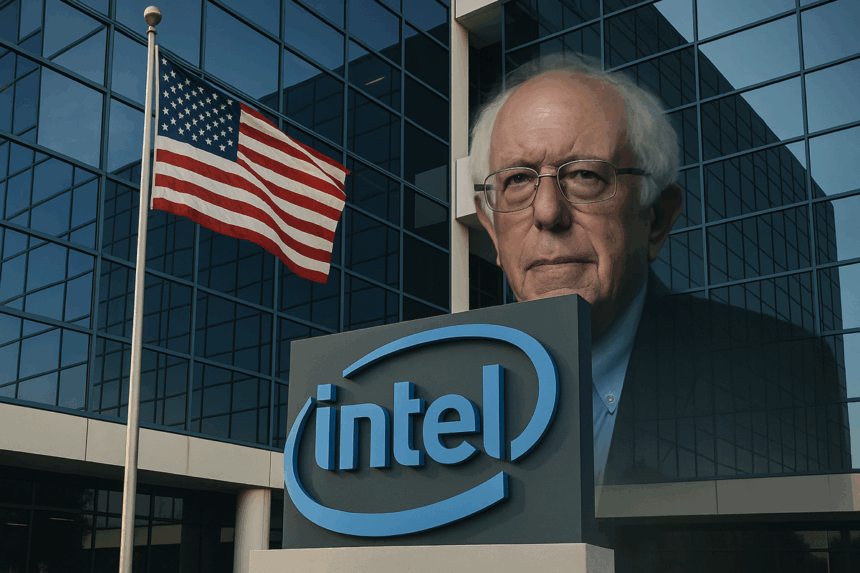What’s Happening & Why This Matters
The Trump White House has confirmed that the United States is seeking a 10% equity stake in Intel, one of the nation’s largest semiconductor manufacturers. The move, which comes after months of uncertainty around the CHIPS Act, has drawn both attention and unexpected support — even from Senator Bernie Sanders, a longtime critic of corporate handouts.
President Donald Trump had campaigned on dismantling the CHIPS Act, legislation signed under President Joe Biden to fund U.S. semiconductor manufacturing. With billions already granted but not yet disbursed, the Trump administration is instead exploring ways to reframe those funds. Rather than handing out subsidies, the White House wants equity in return, effectively making taxpayers part-owners in chipmaking ventures.
Howard Lutnick, CEO of Cantor Fitzgerald, explained the pivot: “The Biden administration literally was giving Intel money for free… and Donald Trump turned it into saying, ‘Hey, we want equity for the money. If we’re going to give you the money, we want a piece of the action for the American taxpayer.’”
The proposed Intel deal is described as “highly unusual.” Government equity in private U.S. companies has only occurred in rare moments, such as during the global financial crisis. Still, some see this as an opportunity to strengthen American competitiveness in semiconductors, especially against TSMC, Samsung, and Nvidia.
Vincent Fernando, founder of consultancy Zero One, noted to the BBC that the proposal “makes sense, given the company’s key role in producing semiconductors in the U.S.” For Trump, reshaping the CHIPS Act into a taxpayer investment vehicle underscores his intent to tie industrial policy directly to returns.
But critics caution that the plan adds uncertainty for other firms in the grant pipeline. Kevin J. Fox, an economics professor, warned that such a precedent could discourage future companies from applying for federal programs. If government support comes with ownership demands, some businesses might walk away altogether.
Even so, Sanders’ unexpected support shifts the conversation. He has long opposed corporate subsidies, calling them handouts to billion-dollar firms. In this scenario, he sees value in converting subsidies into equity. It puts the U.S. government, and by extension taxpayers, in a stronger position to benefit directly if companies succeed.
TF Summary: What’s Next
The Trump administration’s pursuit of an equity stake in Intel transforms the CHIPS Act from a subsidy to shared ownership. For Intel, this could mean both lifeline funding and tighter government ties. For other companies, the uncertainty may cause hesitation. The unusual bipartisan moment, with Trump and Sanders in rare alignment, may shape how Washington thinks about corporate support in the future.
Whether Intel accepts the offer could determine if this approach spreads across industries. If successful, taxpayers could stand to gain, but if companies resist, the U.S. may face delays in scaling domestic chip production.
— Text-to-Speech (TTS) provided by gspeech


